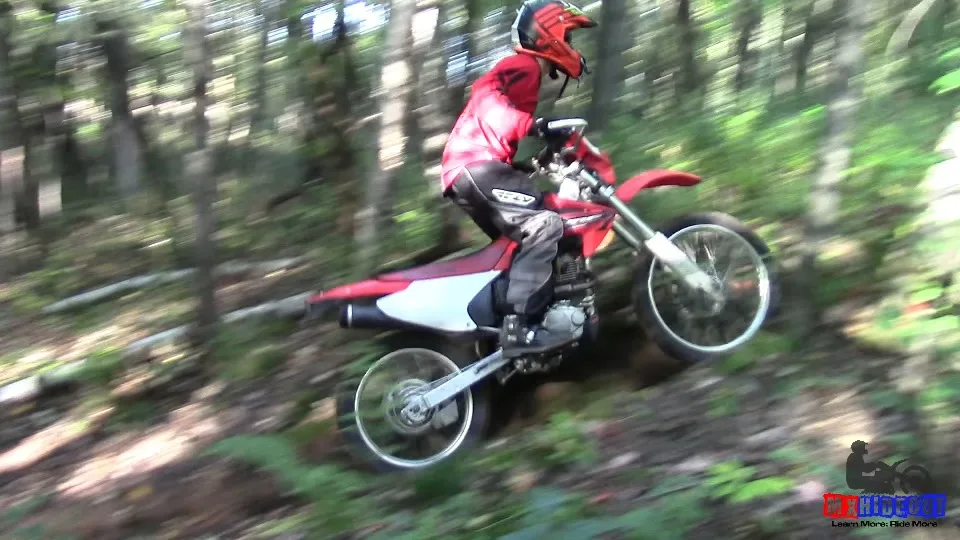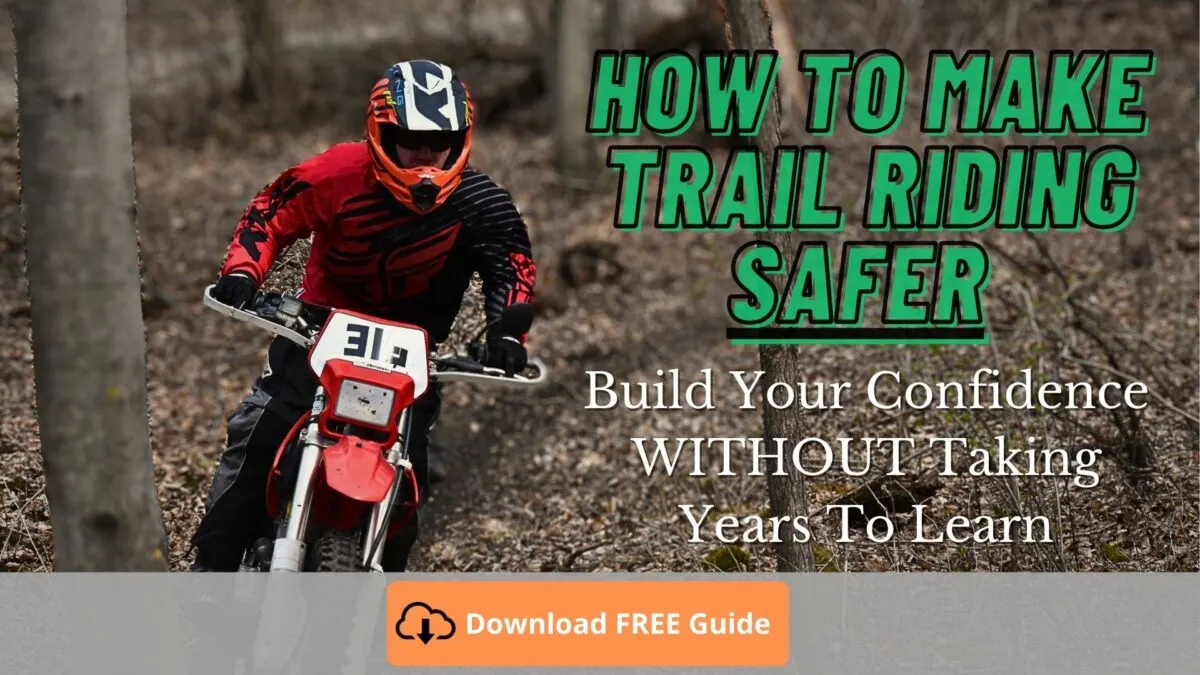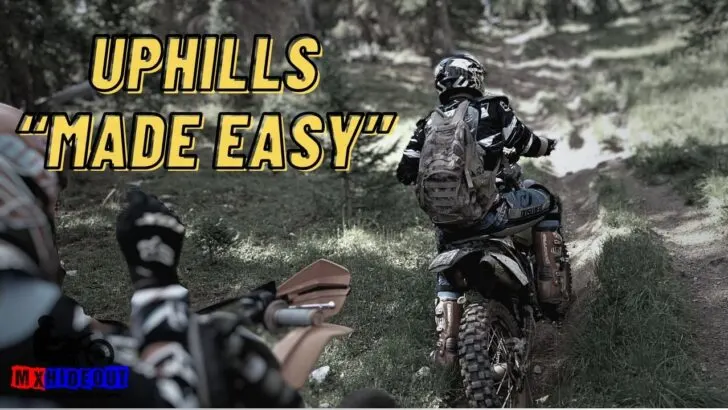Riding up hills can be a blast, but the fear of falling back down a steep hill can kill one's confidence in the woods.
What if I get stuck or stall the bike halfway up the hill?
How will I be able to stop or get back down without falling backward and the bike crashing on top of me?
These are legitimate fears that many of us trail riders have had at one point, or maybe you still do...
If that sounds like you, know there's a way to quickly improve your skills so that you can either get up the challenging steep hills or safely get back down if you stall out.
Some of the biggest mistakes that I see trail riders making that cause you to get stuck on an uphill section in the woods are:
- Looking down at the trail (just past your fender)
- Accelerating once you get to the uphill section
- Giving it gas but the tire is spinning, causing you to lose momentum/stop
- Riding in the highest RPM range
- Sitting towards the rear of the bike to get more traction
If you're making any one of these mistakes, there are some quick and easy ways to improve your skills and confidence so that you get up the hill with less effort.

If you've struggled to get up steep hills in the woods and you've tried to improve your skills, then I'm willing to bet that you've tried at least one of these:
- Just giving it more gas!
- Weighting the rear to prevent the tire from spinning
- Just going at it again and again, guessing at the right technique, hoping you'll reach the top next try
- Having your buddy always ride your bike up the steep hills
If you ride with other trail riders who seem to get up steep hills with little to no effort and are baffled because you don't know what you're doing wrong, this is a sign that you have lots of room for improvement (It's GOOD that you're noticing it now!)
The question is, are you going to keep trying to figure it out on your own, hoping that you'll improve by this time next year?
It's possible, but it takes a lot more seat time.
Do you have the time and patience to ride at least twice a week to improve?
What if you fall over on every steep uphill section and start breaking parts?
-$25 for a new clutch lever
-$95 for new handlebars and grips
-$295 for a new pipe that was smashed by a rock
Just "giving it more gas" is not the best way to get up steep hills.
Many trail riders try this, thinking that it will get him or her up a hill faster, which seems like a good idea, but it doesn't always help.
Why?
There's a few things that can go wrong if you're just twisting the throttle more:
1. If you're not paying attention to the terrain or have proper throttle control, it's easy to give it too much gas, causing the rear tire to spin.
Once the rear tire starts spinning, you're losing momentum, making it much harder to reach the top.
2. If you know the rear tire might spin, you might be "getting over the rear" of the bike while gassing it, but this can make you wheelie, forcing you to let off the gas or dumping you off the rear (and hopefully not flying down the hill!)
3. Or if you're twisting the throttle and "hoping for the best", you're more likely to fly off the trail, which could end up hitting a tree or sliding down a ledge cliff - scary!
Getting proper traction is key to getting up steep hills, especially when the terrain is slippery.
It requires proper body position, throttle control, as well as knowing what's coming up on the trail.
Uphills "Made Easy" - Discover all of the best techniques today!
If you'd like to start mastering uphills in the woods today, rather than taking months or years trying to figure it out on your own, I highly encourage grab my new "Uphills Made Easy" troubleshooting workbook.
I want YOU to have more confidence, but ultimately I want you to stay safe and have more fun, and that's what this practical workbook is designed to do - get you results in the SHORTEST time possible (just minutes of reading and then applying it)
Click here to grab it now at this introductory price before it's too late!
It's a PDF that can be viewed, downloaded, or printed out - share it with your spouse or kids!


